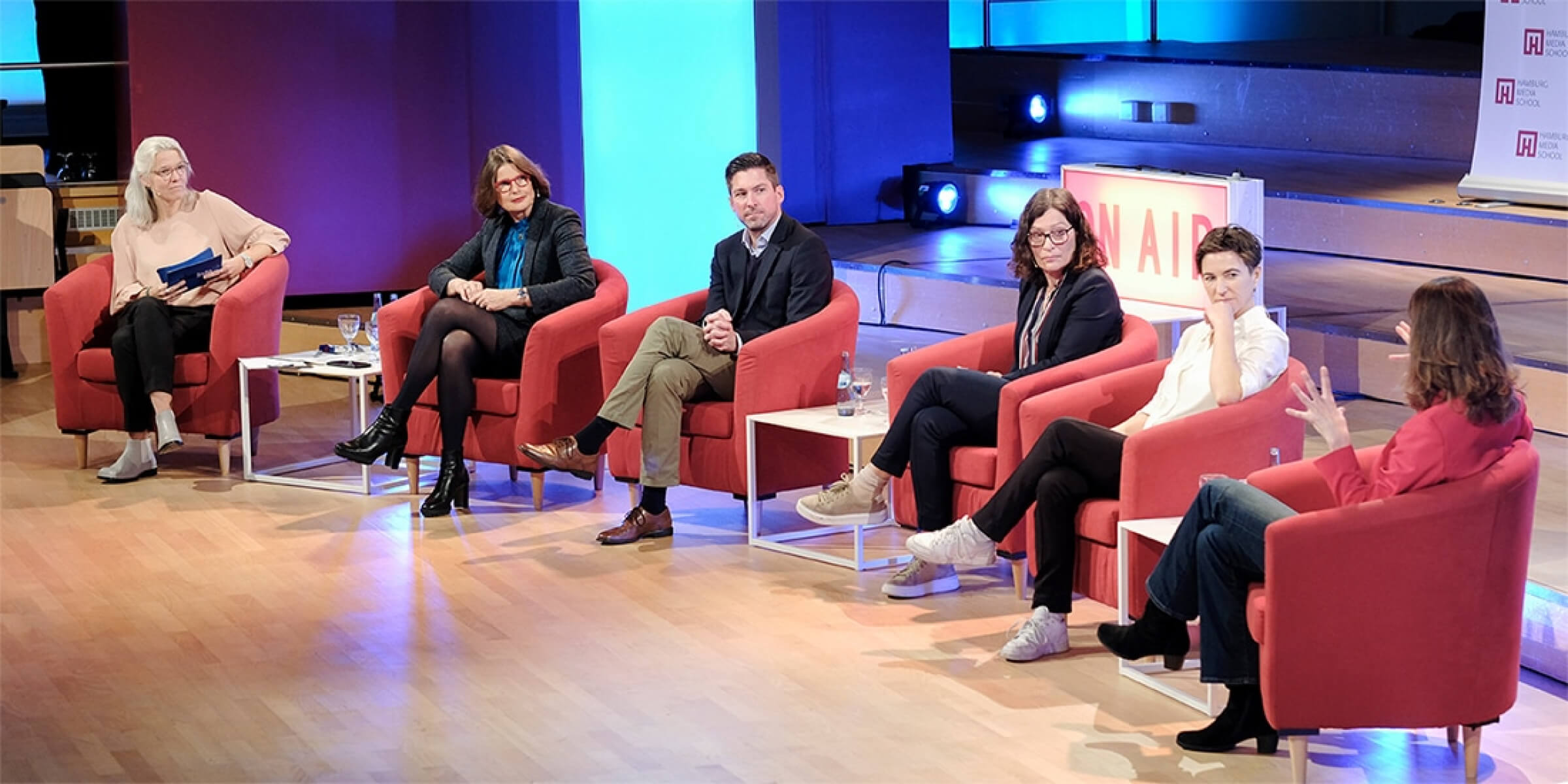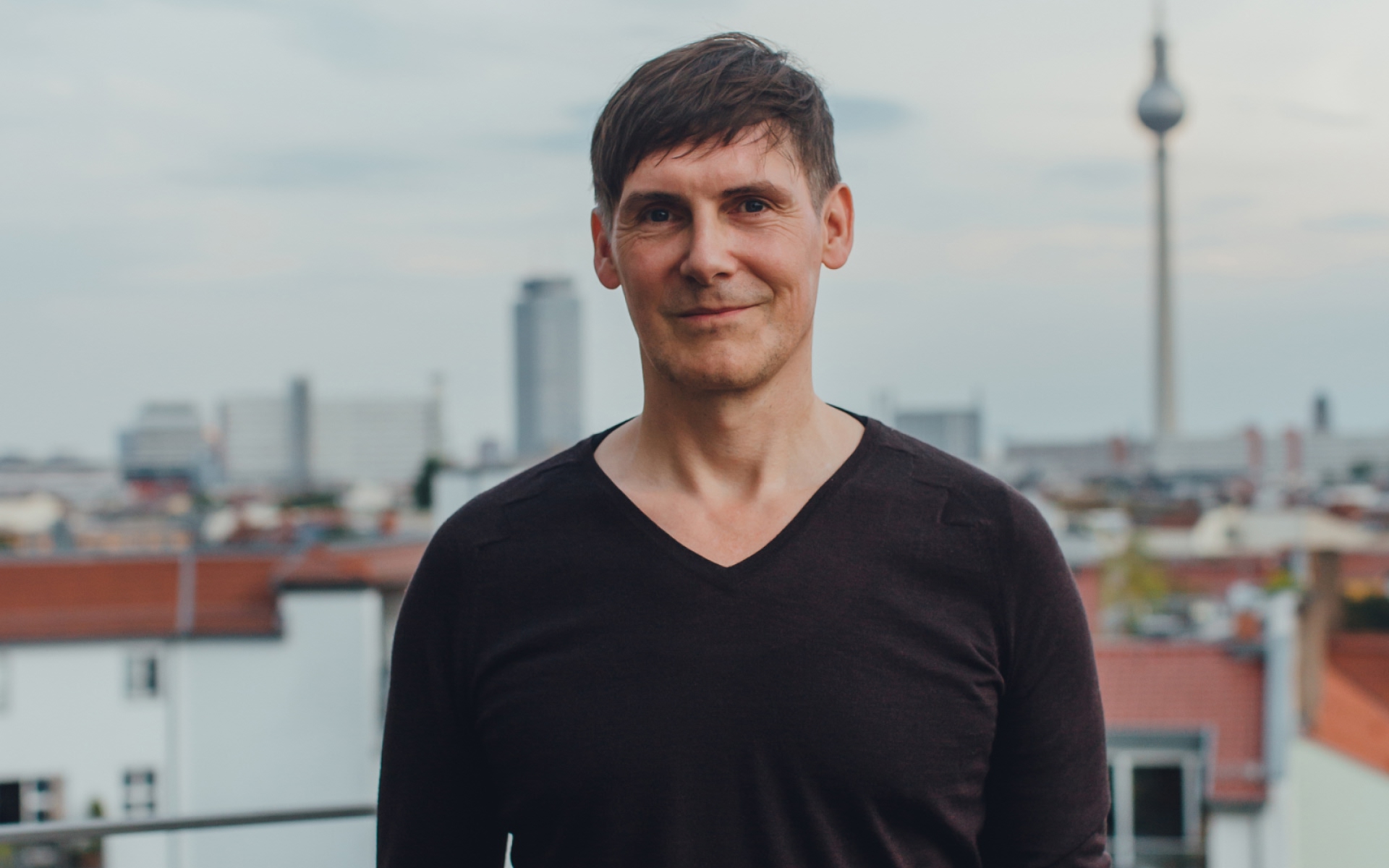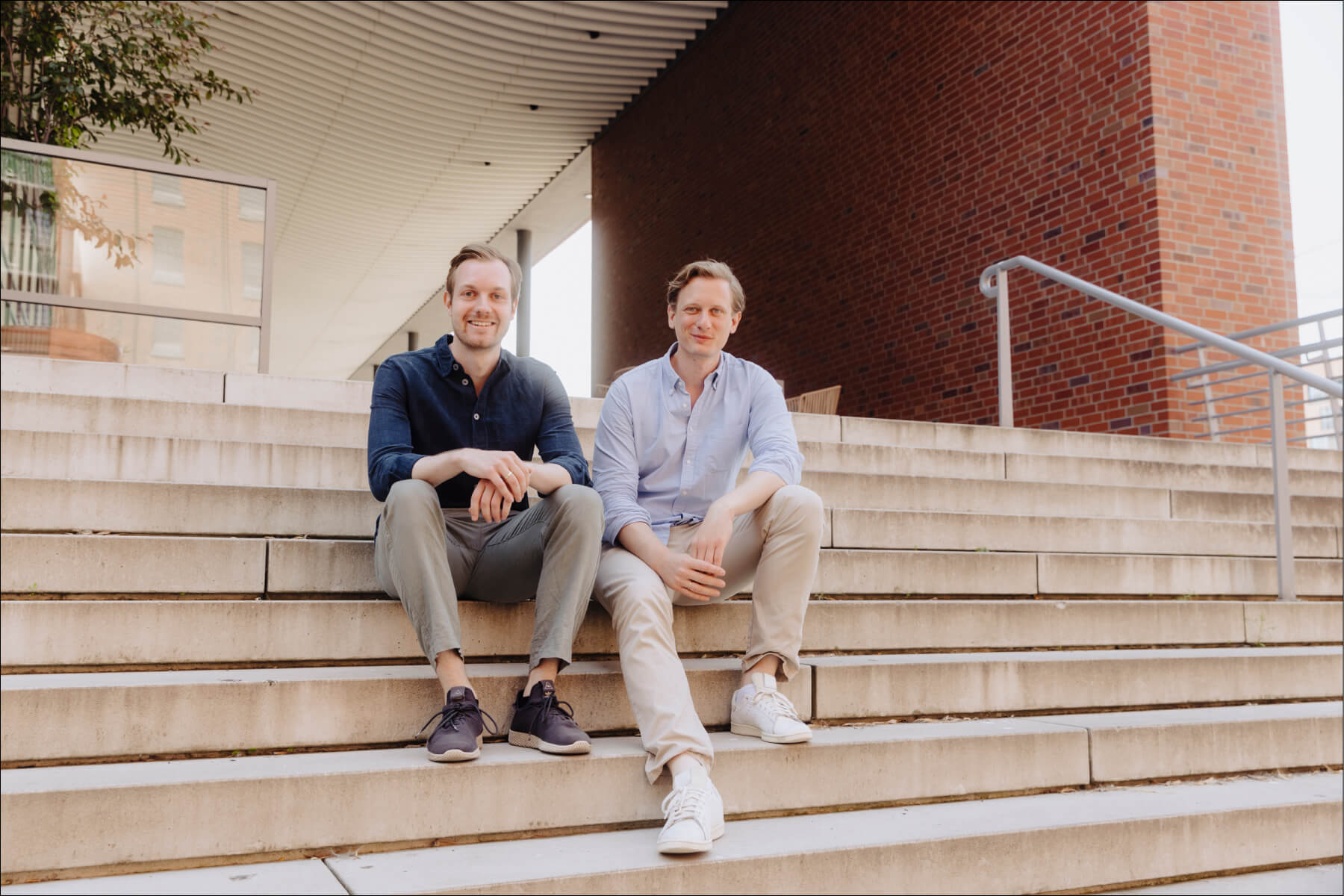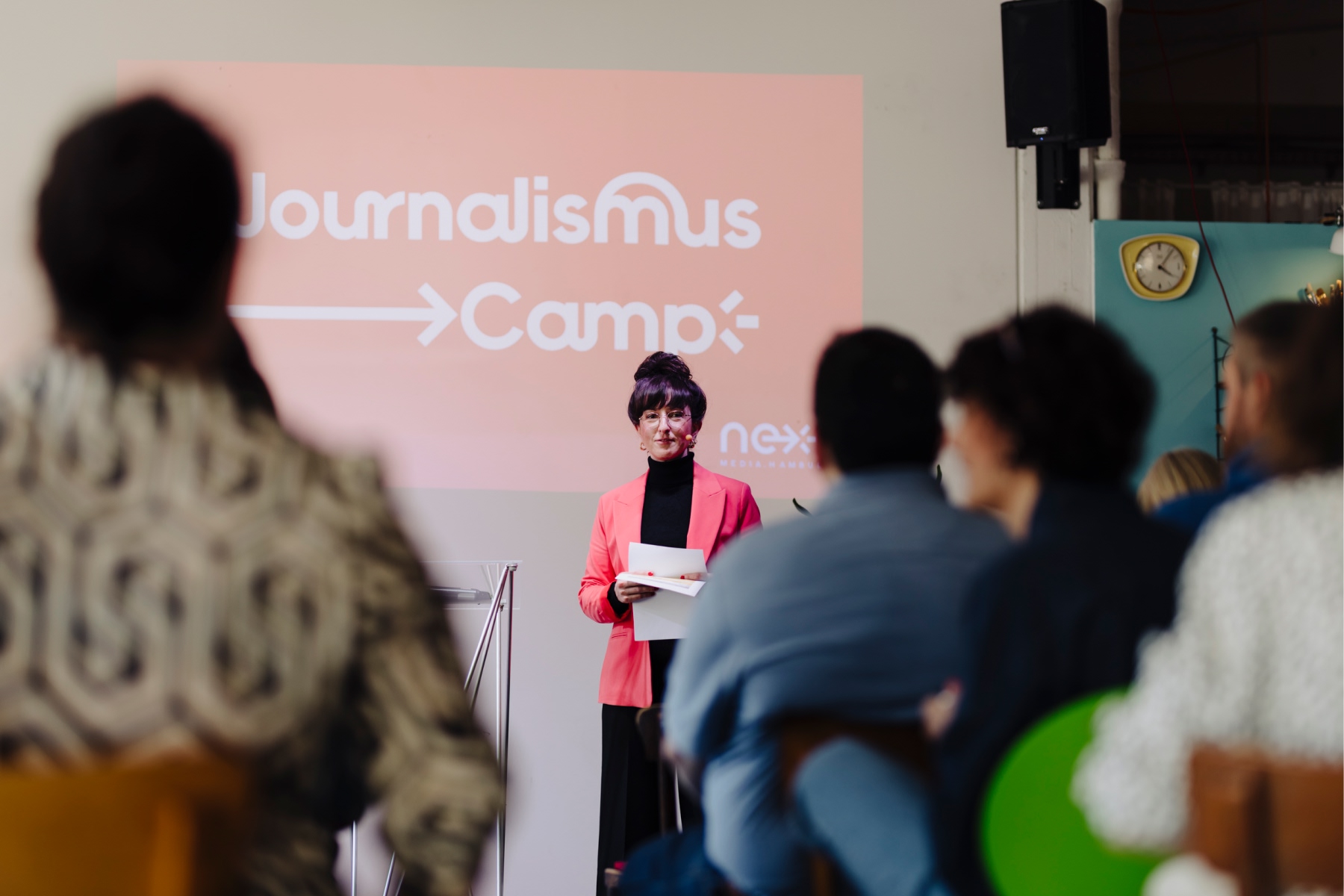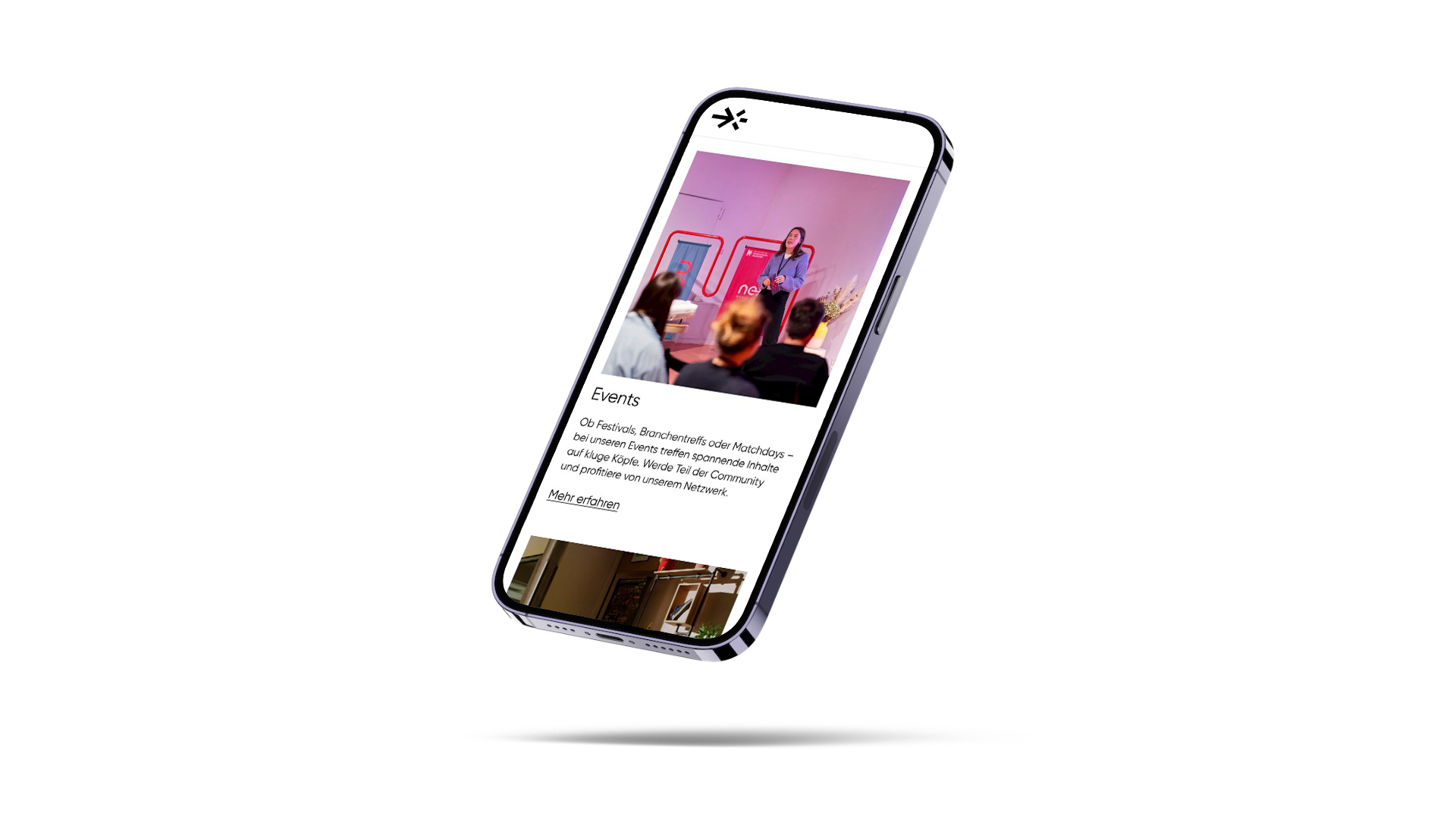Constructive journalism departs from purely negative, conflict-laden reporting and offers solutions and in-depth explanations. At the Constructive Journalism Day 2022 (CJD), experts showed how effective this is, especially in times of crisis, such as the war in Ukraine, the coronavirus pandemic or climate change. The CJD was organized by the Hamburg Media School (HMS) and NDR Info with the support of the Schöpflin Foundation and the Bonn Institute. We were there for you and recorded the most important findings on constructive journalism in times of crisis:
The problem: News avoidance
According to Prof. Dr. Alexandra Borchardt from the Hamburg Media School, negative news about conflicts and crises leads to news avoidance. This means that people try to protect themselves from negative, conflict-laden news by not watching, reading or listening to the news at all.
This is also shown by this year's Digital News Report from the Reuters Institute: 29% of Germans sometimes or often avoid news. This is particularly evident among younger target groups, with 37% of 18-34-year-olds avoiding news at least sometimes. The Digital News Report also shows that trust in German media has declined. The younger audience has a lower level of trust compared to the rest of the population. You can view the data from the Digital News Report on news avoidance in Germany in this interactive overview.
The solution: constructive journalism
Since constructive journalism not only shows conflicts and bad news, but also offers different perspectives and solutions, target groups that previously avoided news can be better introduced to topics. However, constructive journalism should not simply be equated with positive news. Instead, constructive journalism shows a more holistic picture of an event and - where possible and available - provides solutions to the problems mentioned.
Ellen Heinrichs and Pauline Tillmann from the Bonn Institute interviewed media users for their study on constructive war reporting. They found that they would like to see a greater variety of perspectives, background information, reporting at eye level and a greater focus on solutions, among other things. Constructive journalism is therefore explicitly desired by the audience. None of the interviewees said that war news should be glossed over or omitted in order to protect the audience from bad news.
Both the DRIVE project from dpa and the management consultancy SCHICKLER and an AI tool from FOCUS Online, which measures the constructiveness of articles, found that solution-oriented, explanatory background pieces lead to readers staying longer. According to Katja Fleischmann (dpa), this is a way to retain readers and encourage more readers to take out subscriptions. You can find more information about DRIVE in our interview with Katja Fleischmann.
How should journalists report constructively on crises?
Answers to this question were provided at Constructive Journalism Day in keynote speeches by Prof. Dr. Alexandra Borchardt from HMS and Ellen Heinrichs and Pauline Tillmann from the Bonn Institute, among others. Journalists should consider the following in order to report effectively and constructively:
- reporting should provide background information
- articles should focus - where they exist - on solutions to the problems mentioned
- the information should be transparently substantiated in the stories (e.g. with the help of links to background information and sources)
- Journalists should present a holistic picture with many perspectives
- the topic should be anchored where people live and focus on the here and now (e.g. show the current reality of climate change)
- focus on personal stories that show the power of people instead of portraying them as victims
- diversity is important for constructive journalism - both in the stories and in the editorial offices
- Journalists should be guided by the wishes of their audience and adapt the articles and playout channels to the respective target groups
- Sensitive handling of images and language (e.g. potentially incriminating images could be provided with a trigger warning)
The challenges for constructive journalism
Constructive journalism poses new challenges for editorial teams. In its study, the Bonn Institute found that time pressure and the increased workload prevent journalists from engaging in constructive journalism. This is a problem for freelance journalists in particular, as they often do not have the resources to research stories from different perspectives.
In addition, constructive journalism is not sufficiently anchored in editorial cultures, which is why some editorial teams do not have the necessary knowledge about constructive journalism. Another challenge is the lack of diversity in the editorial offices, which means that hardly any different perspectives and protagonists are shown.
Birgitta Schülke from Deutsche Welle also emphasized in the CJD discussion round that sufficient broadcasting time and resources must be available for comprehensive background reporting. Deutsche Welle, for example, has already restructured its program and made longer broadcasting times for more comprehensive news possible.
